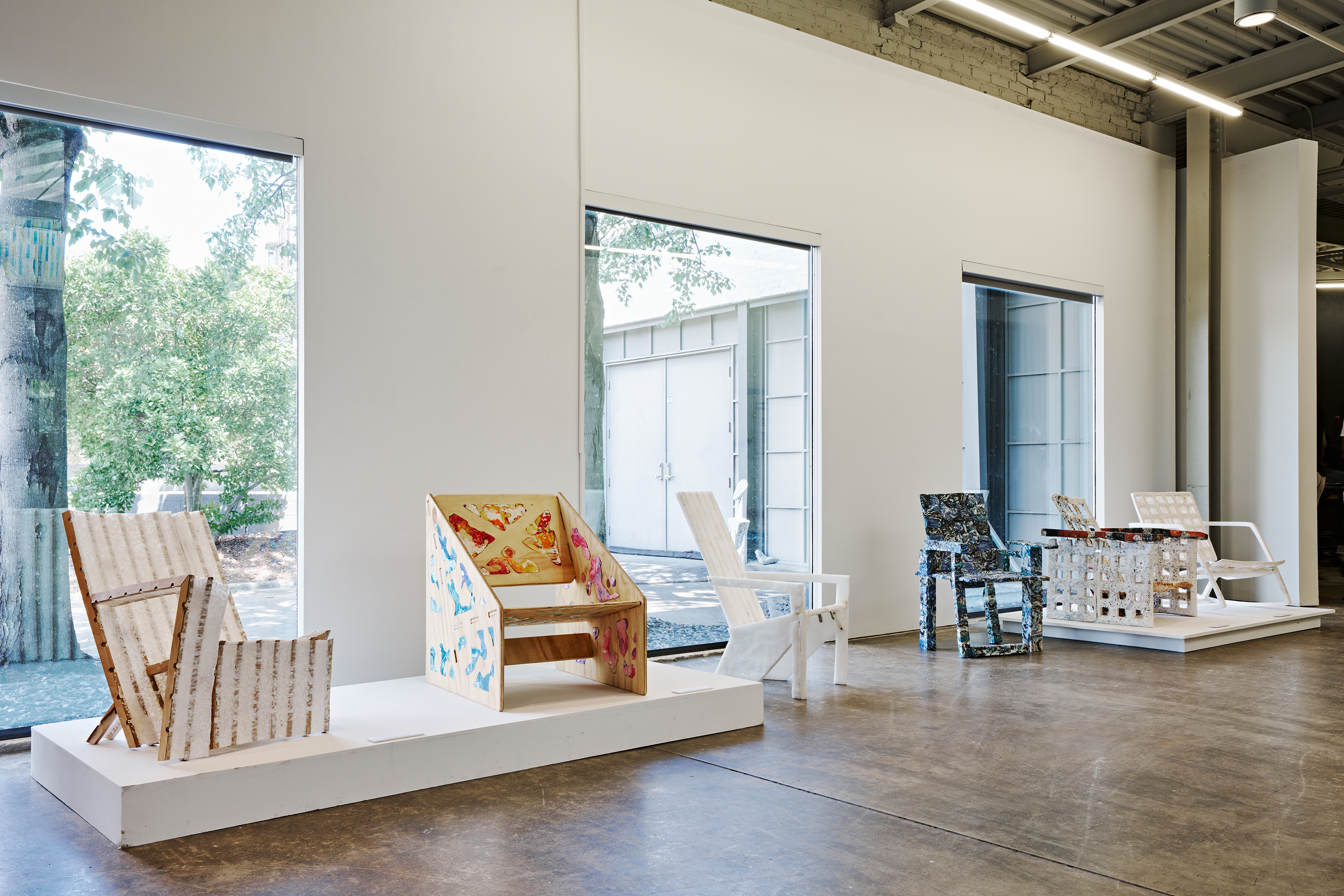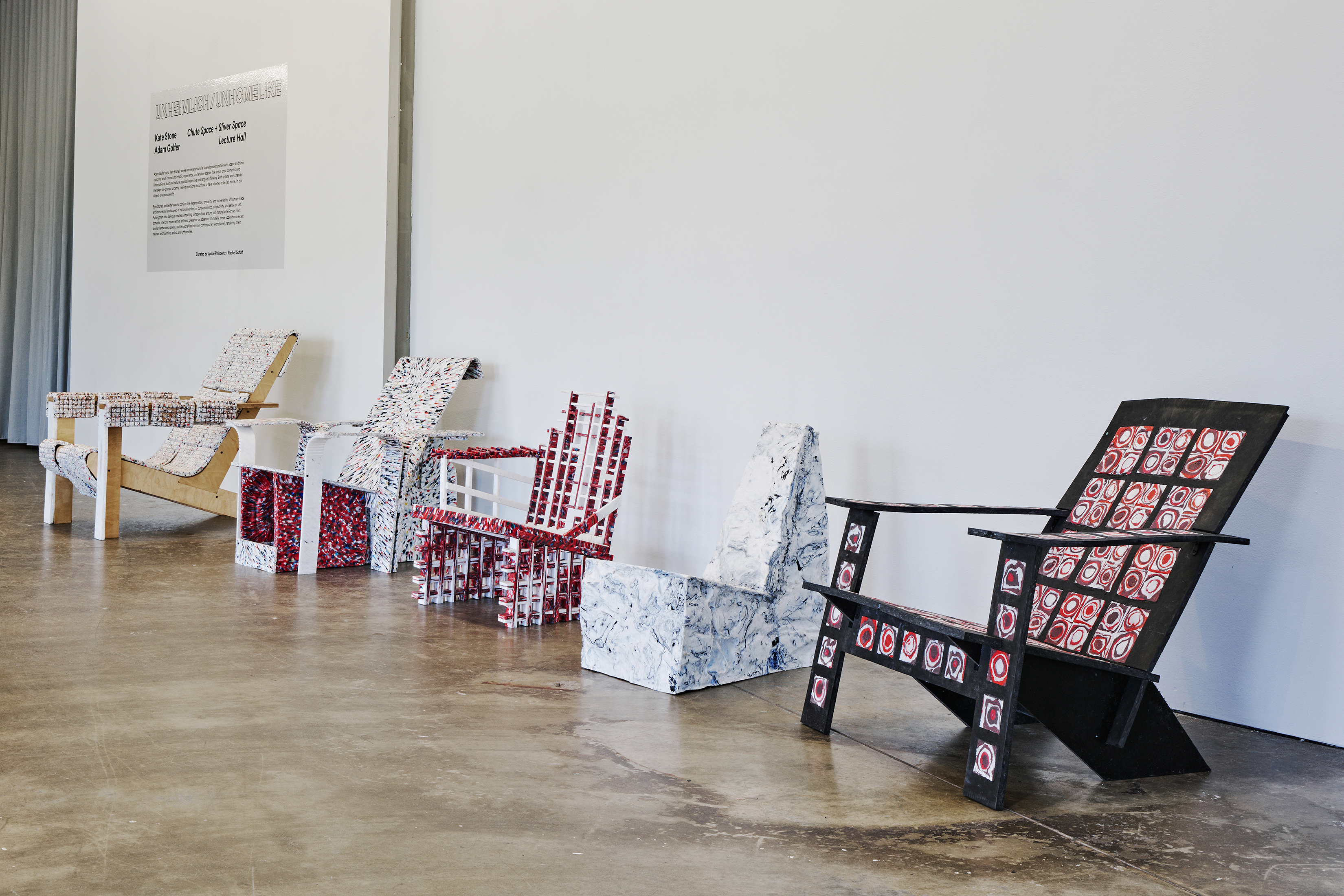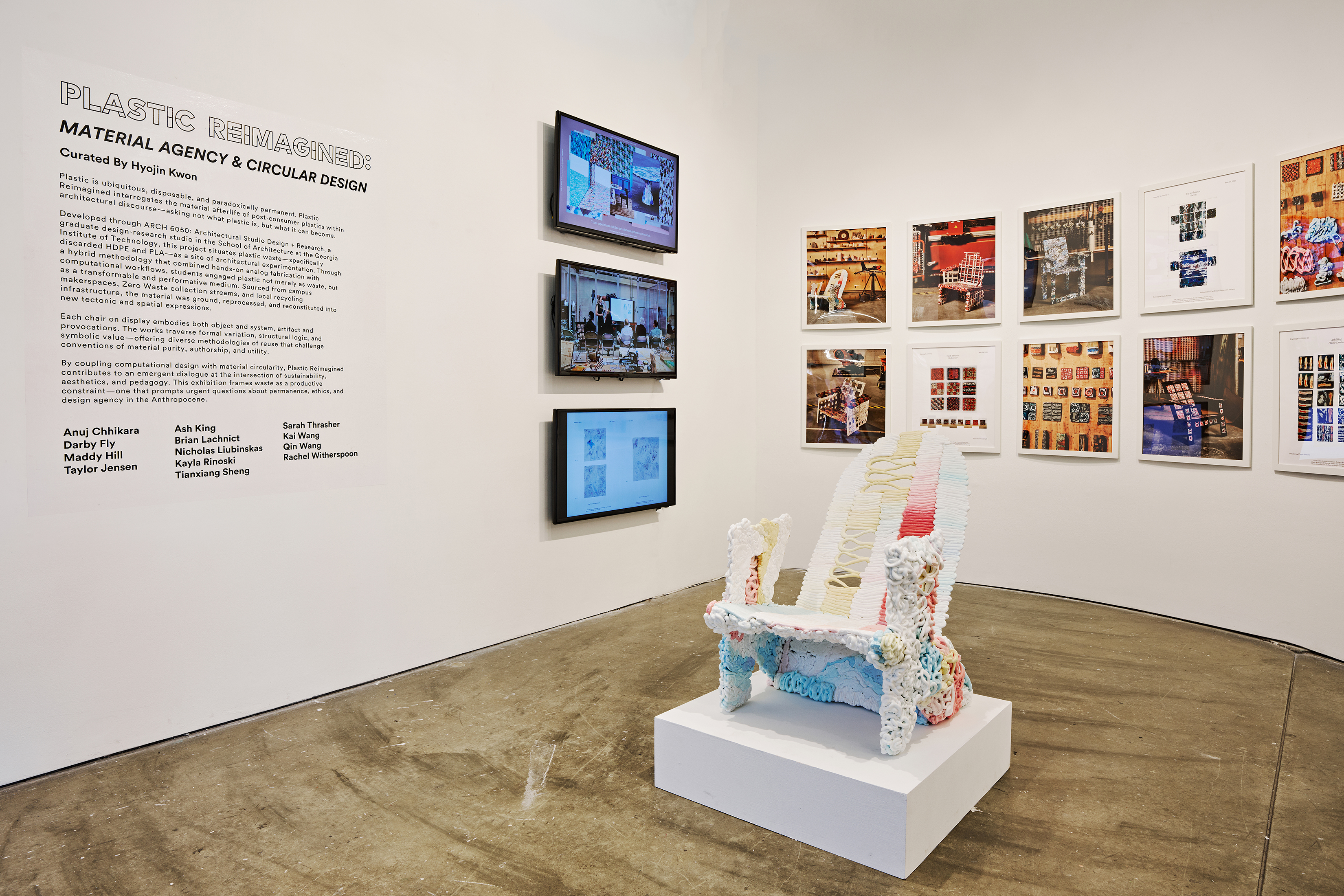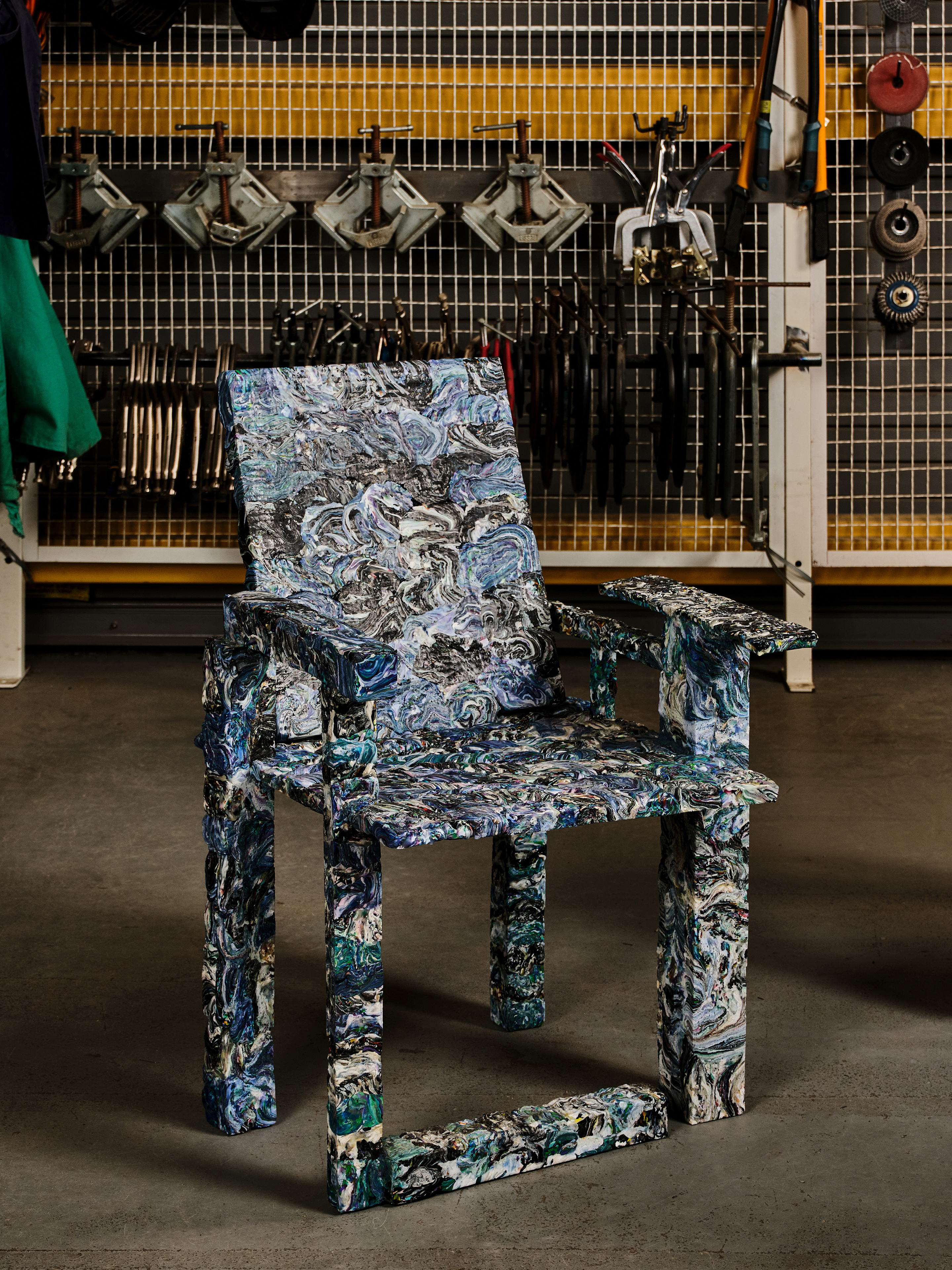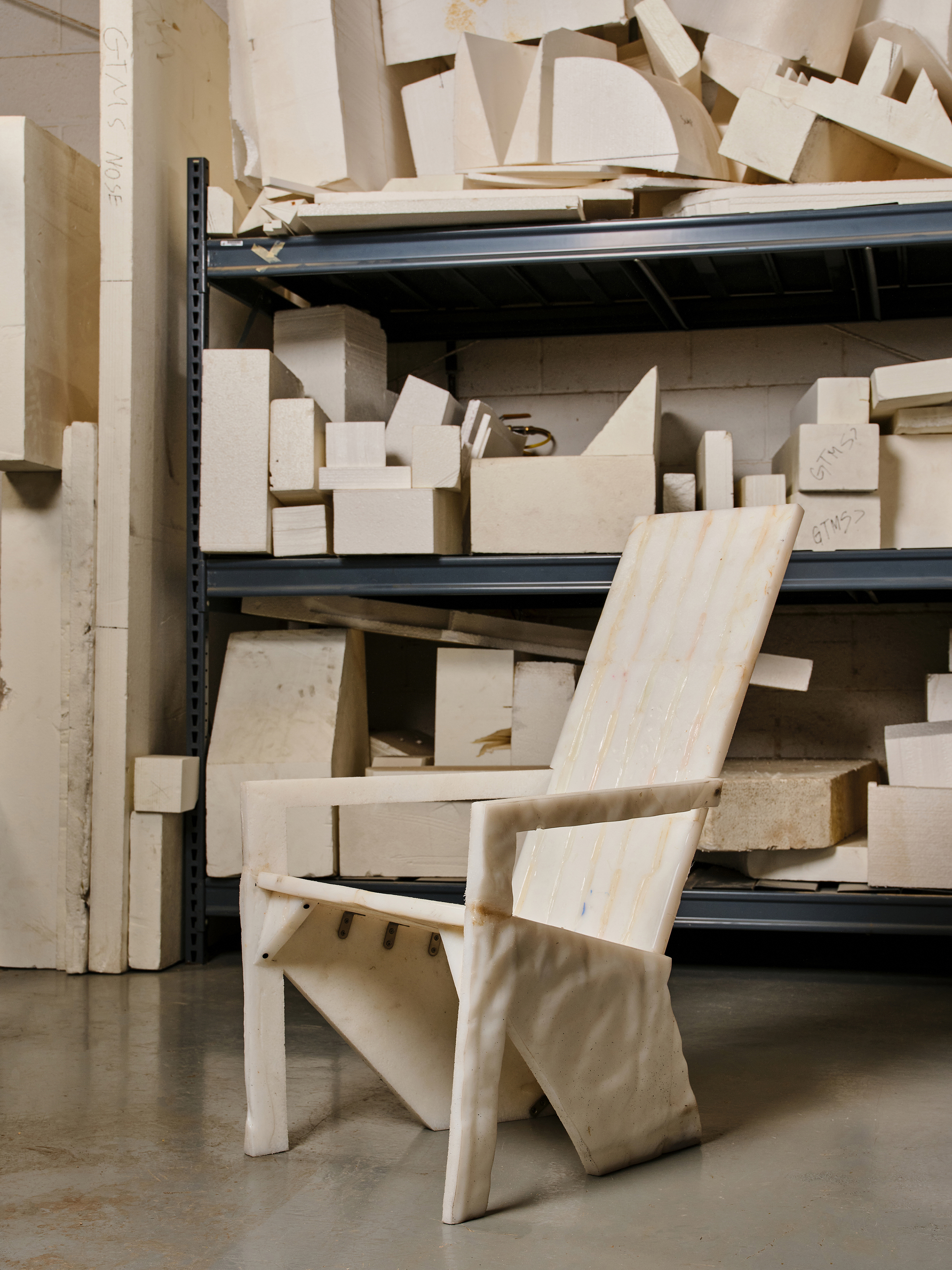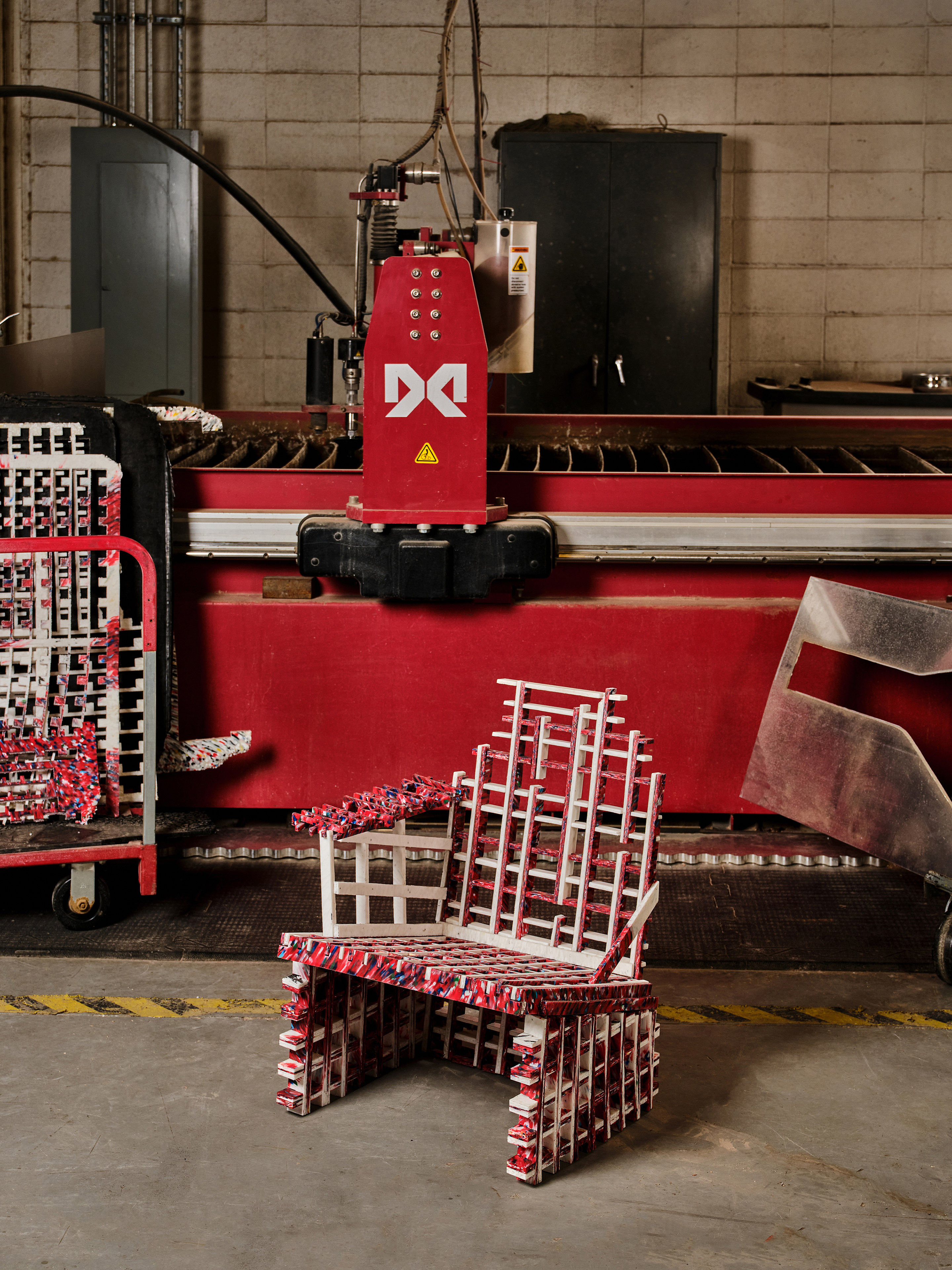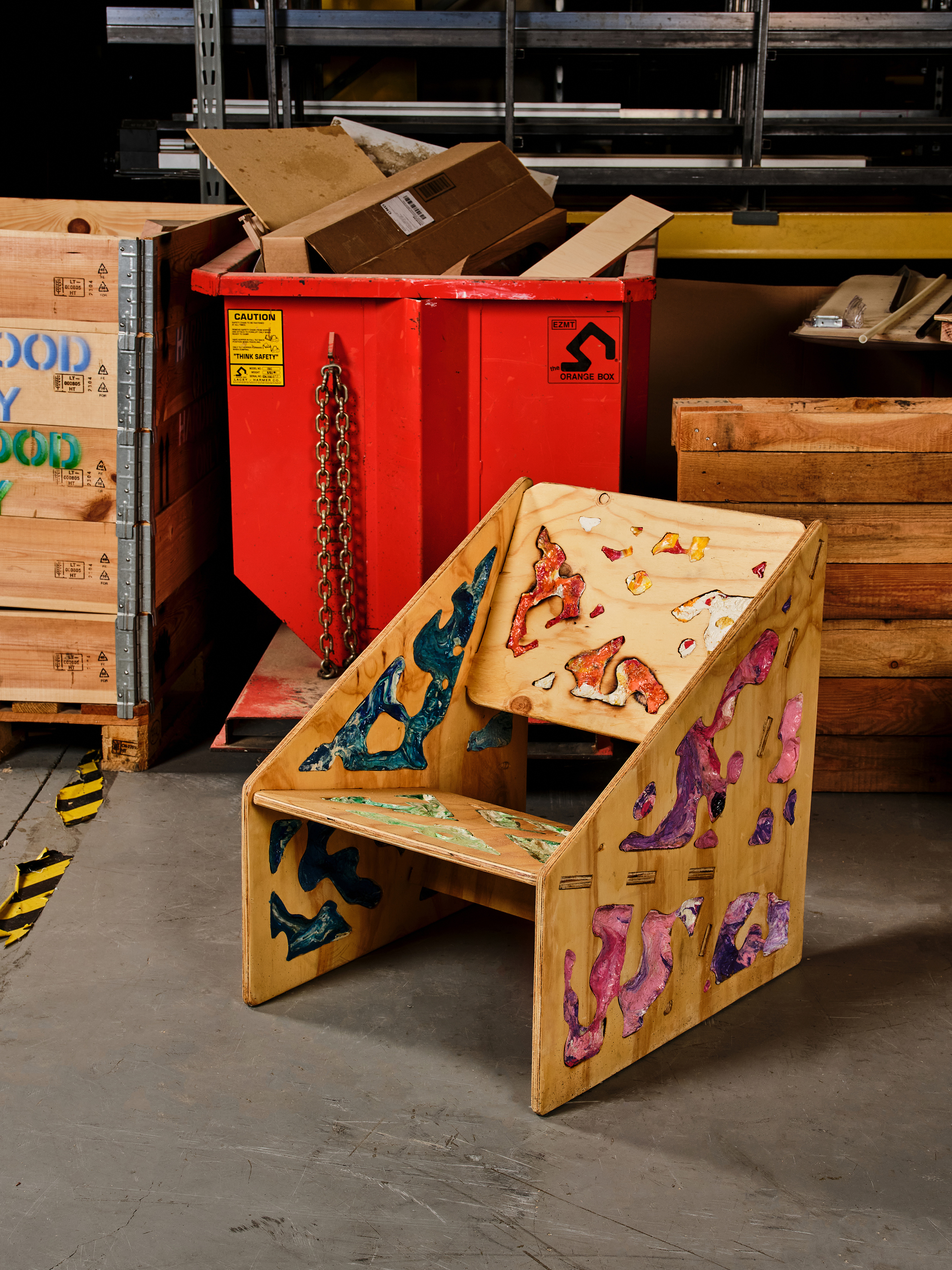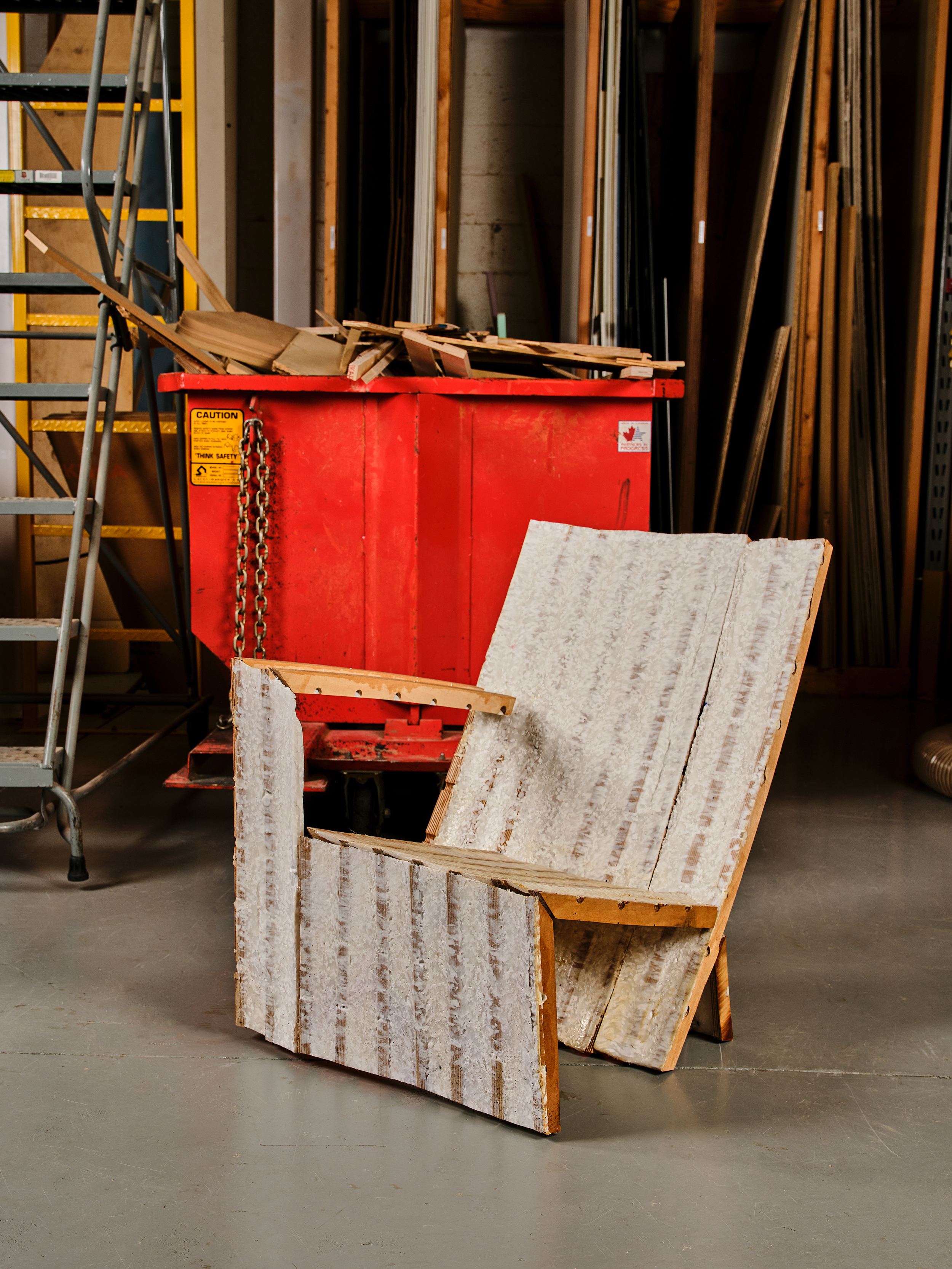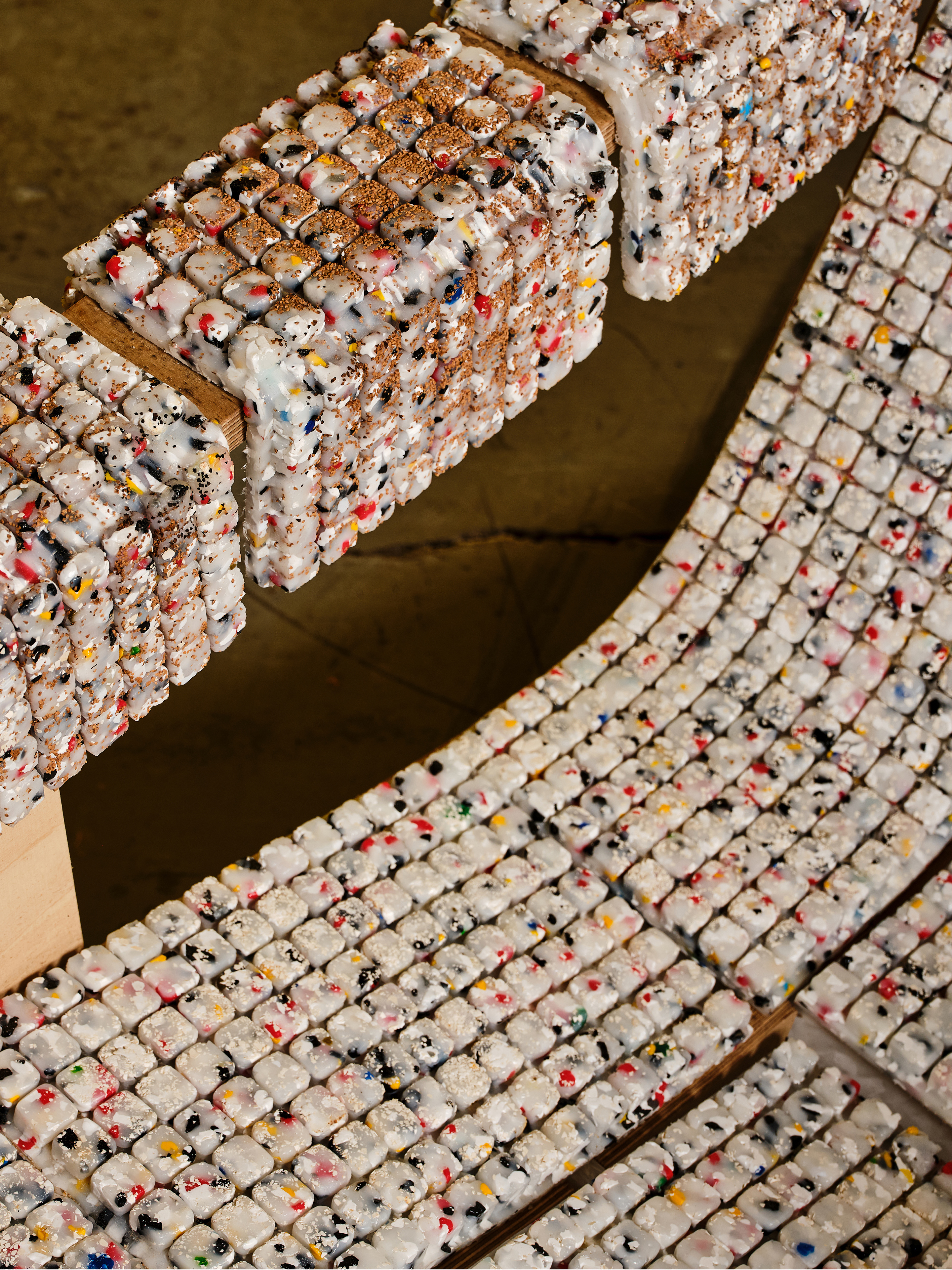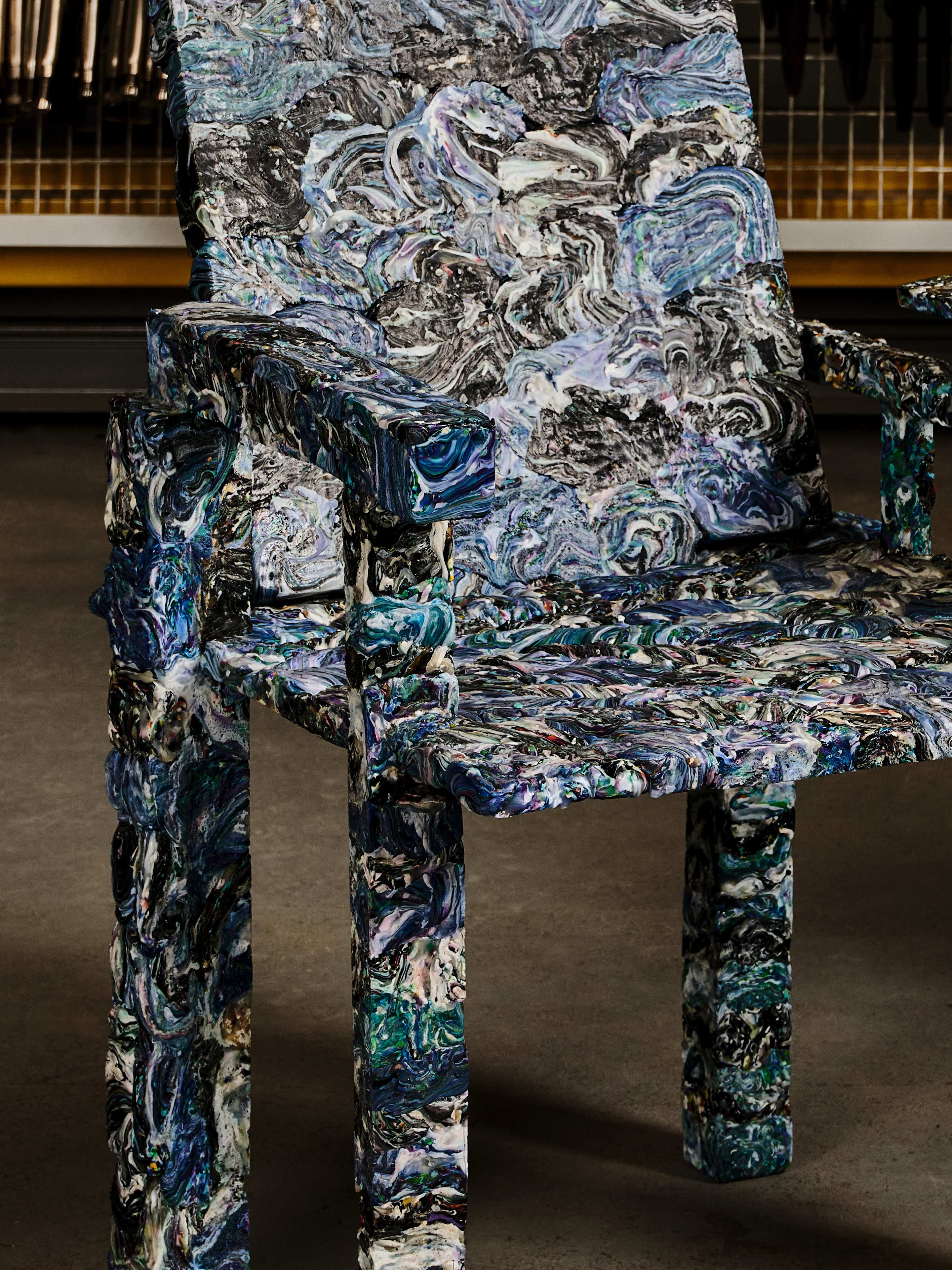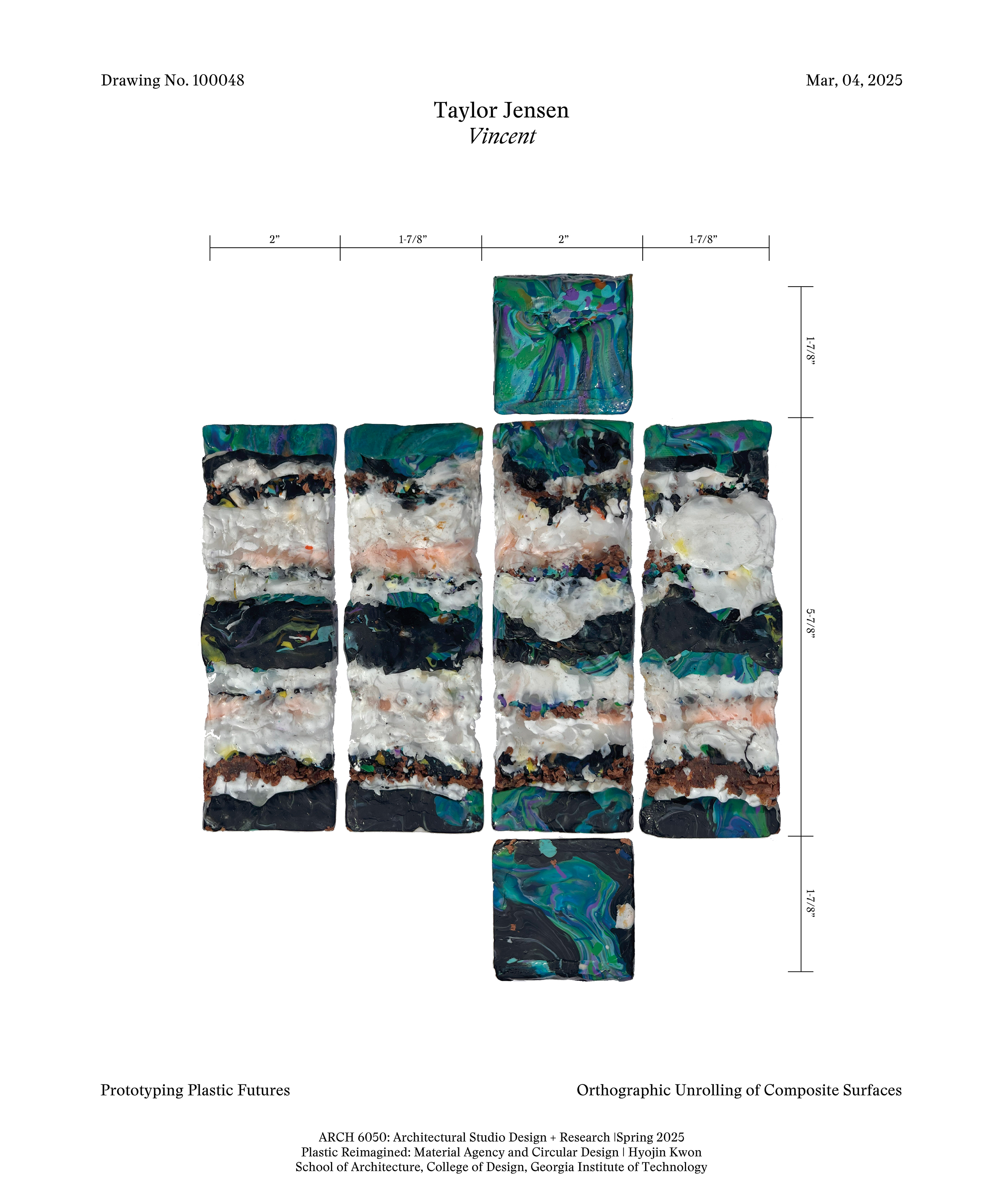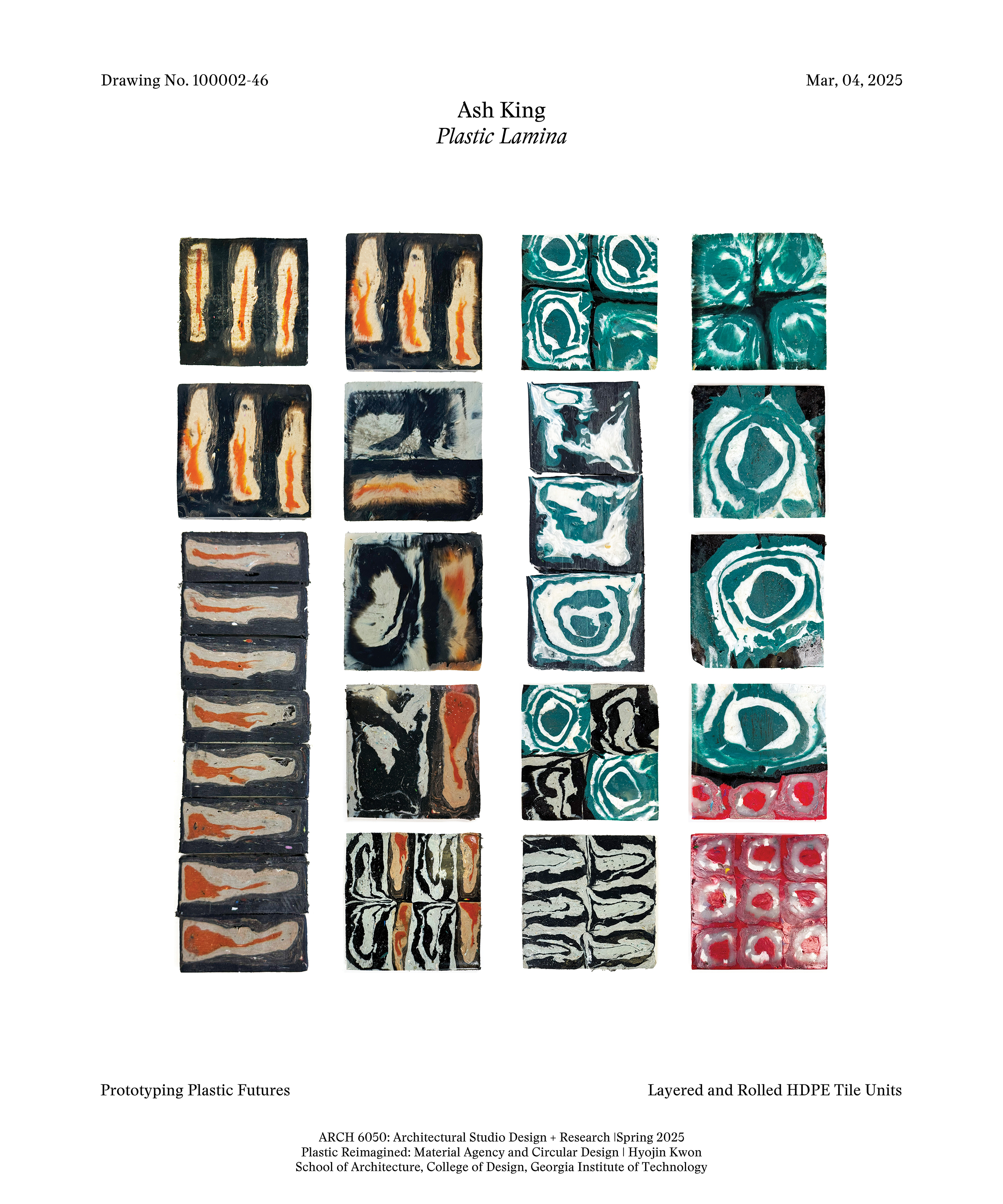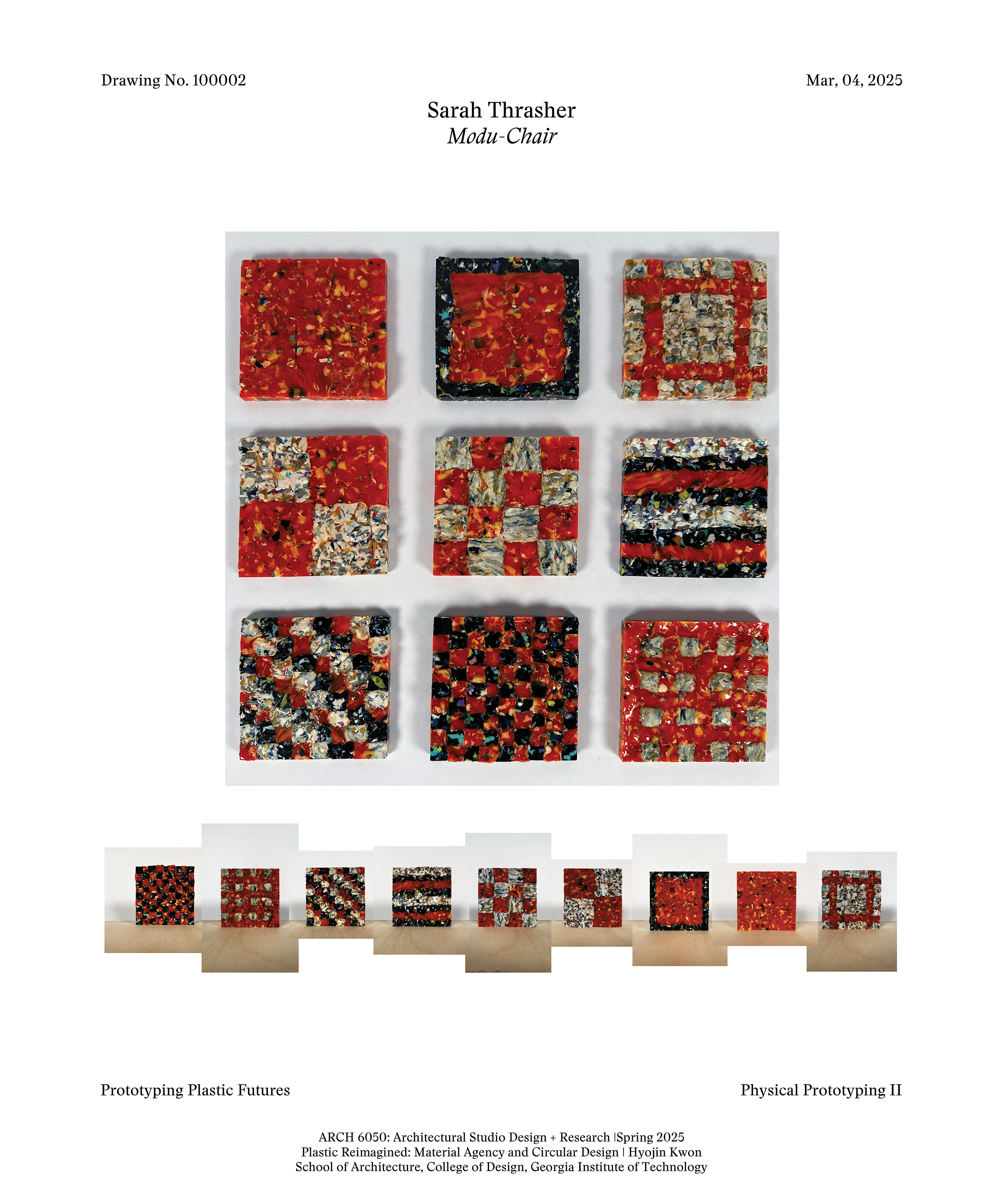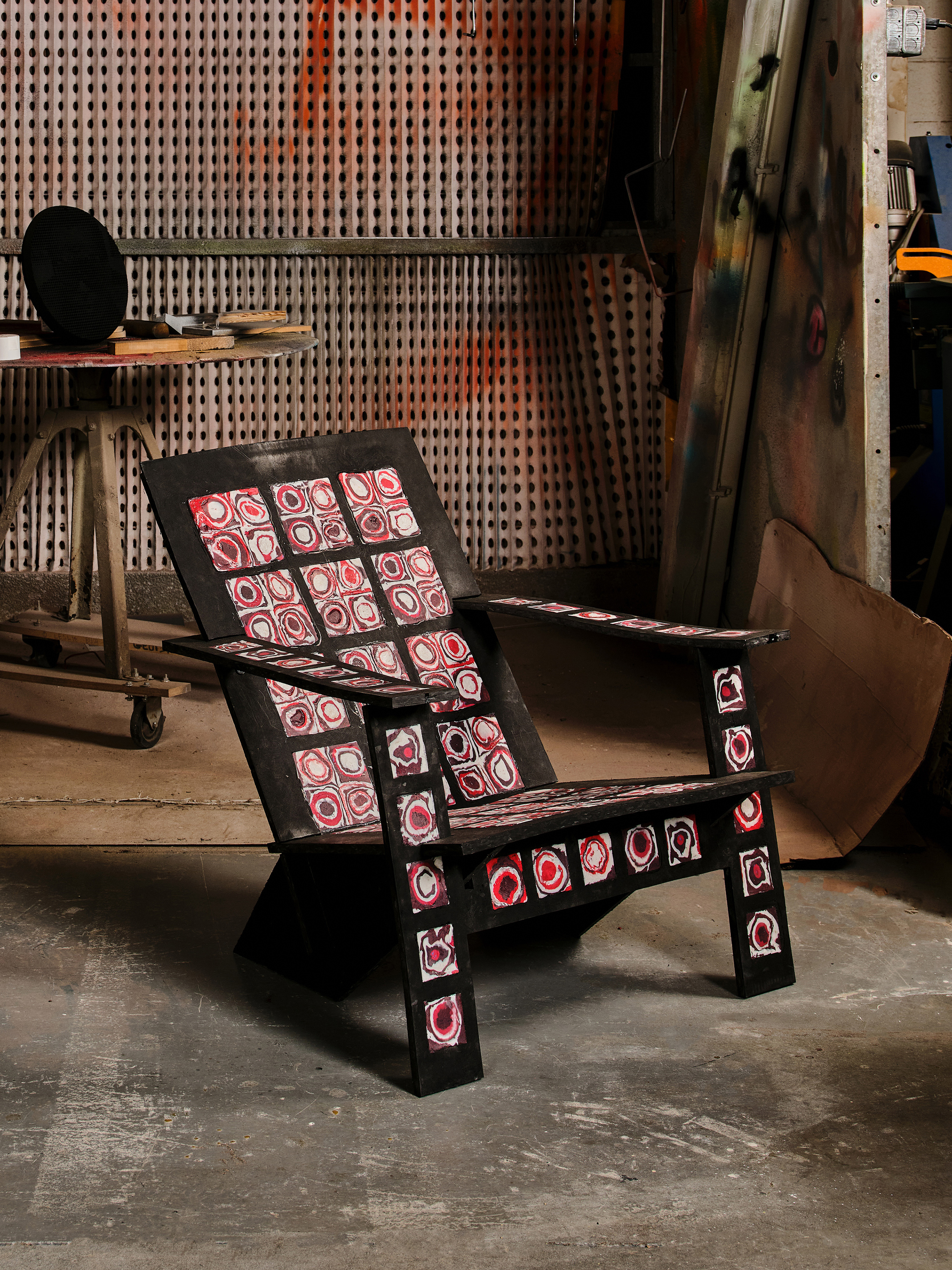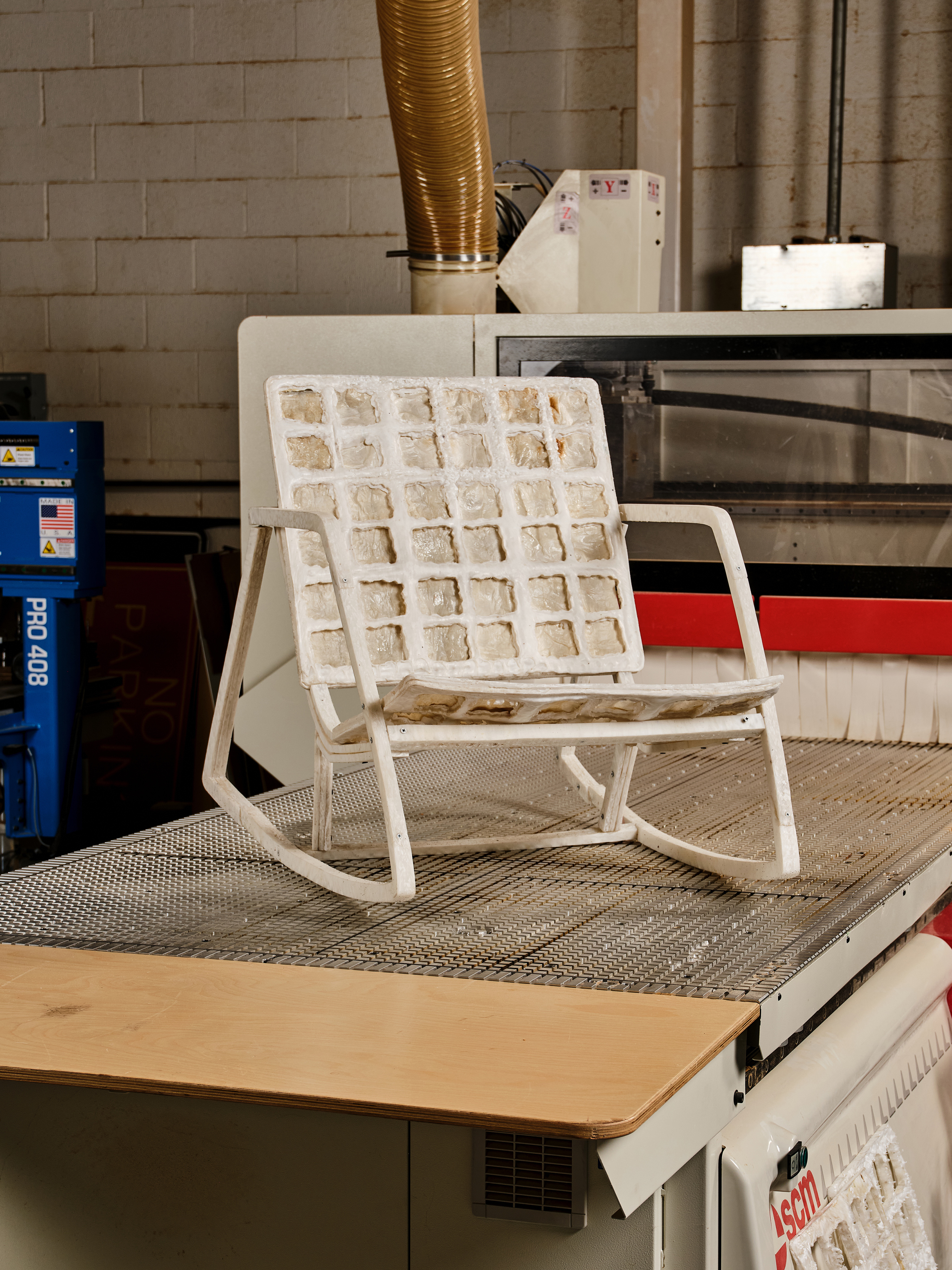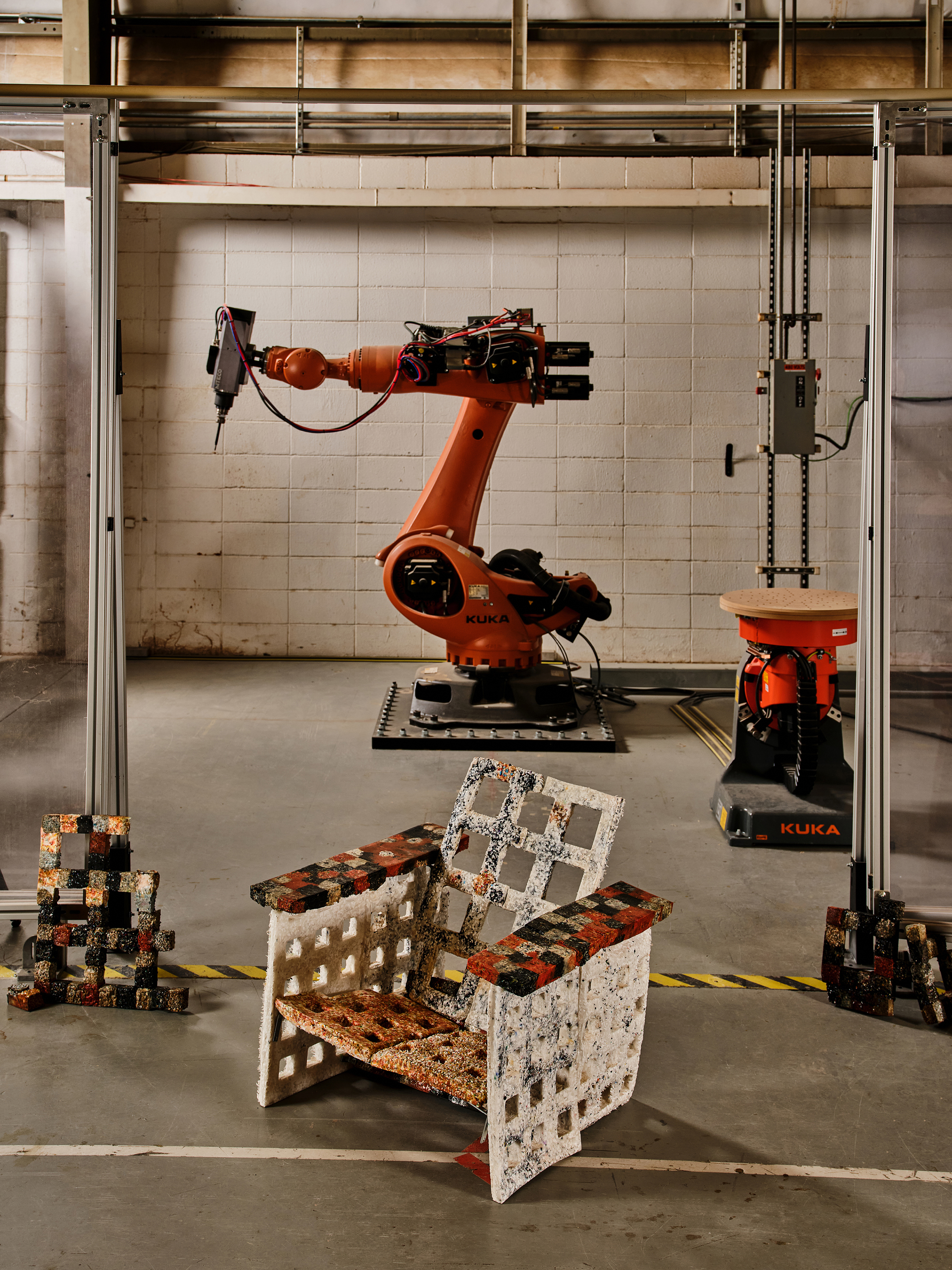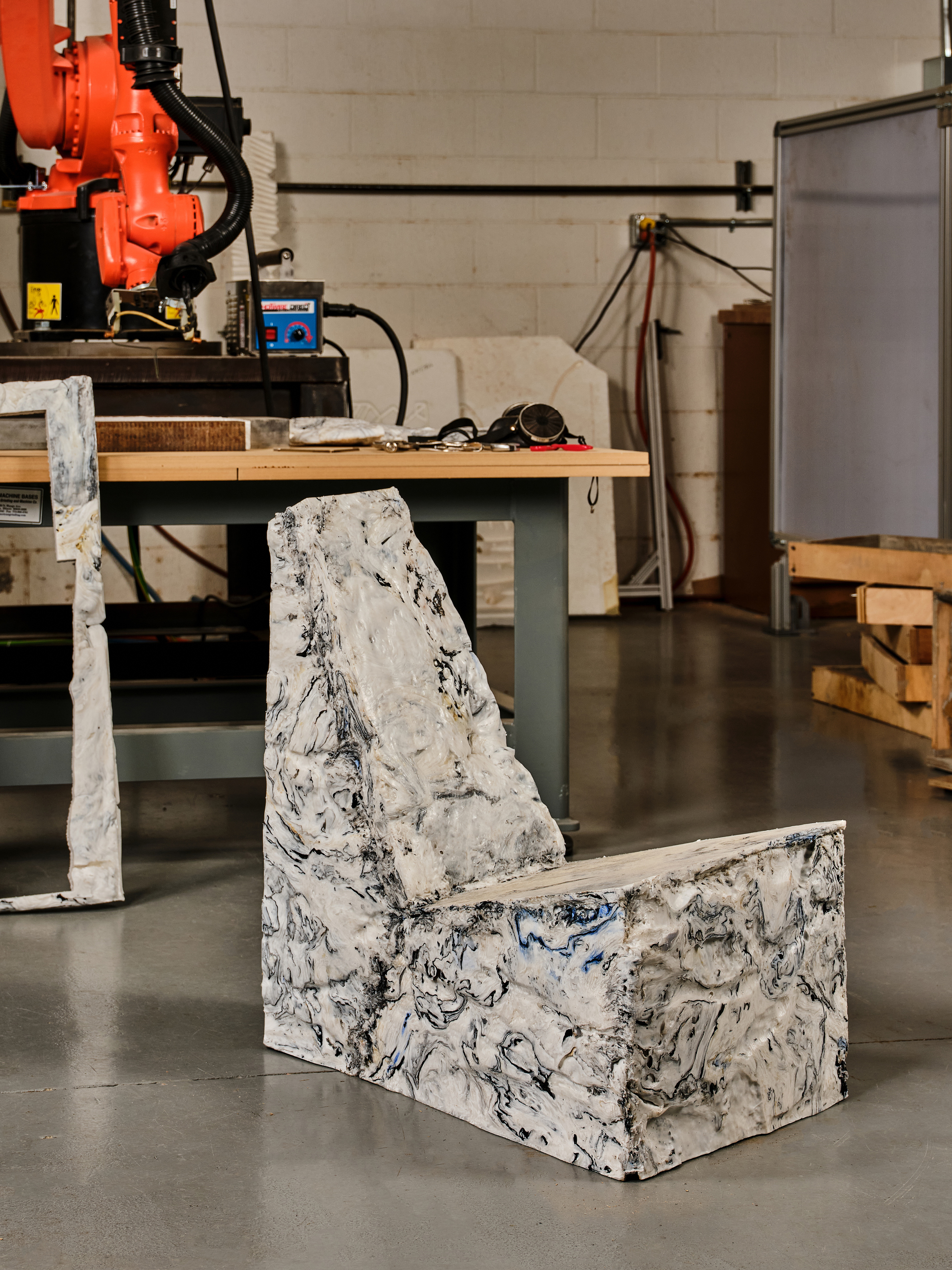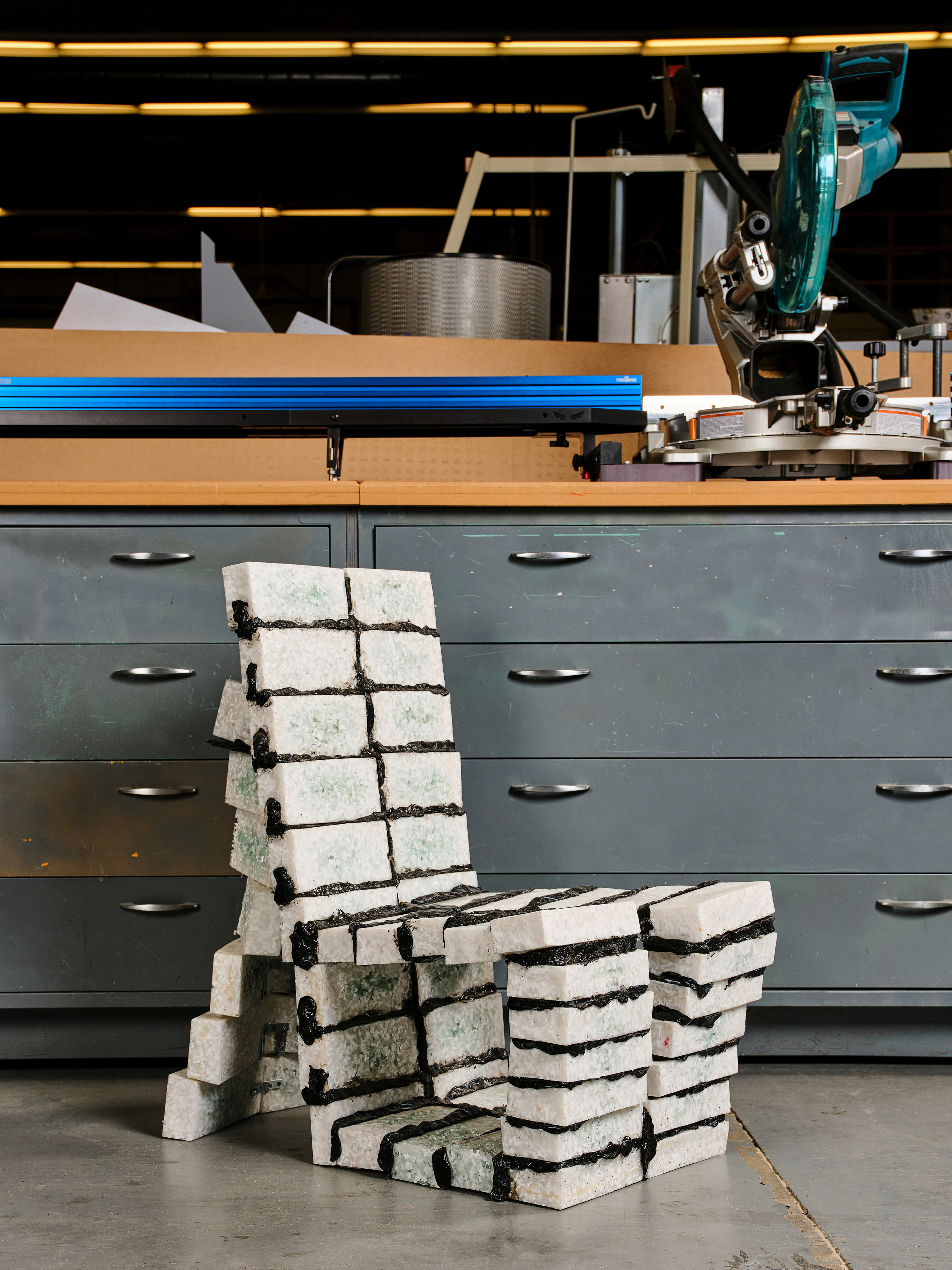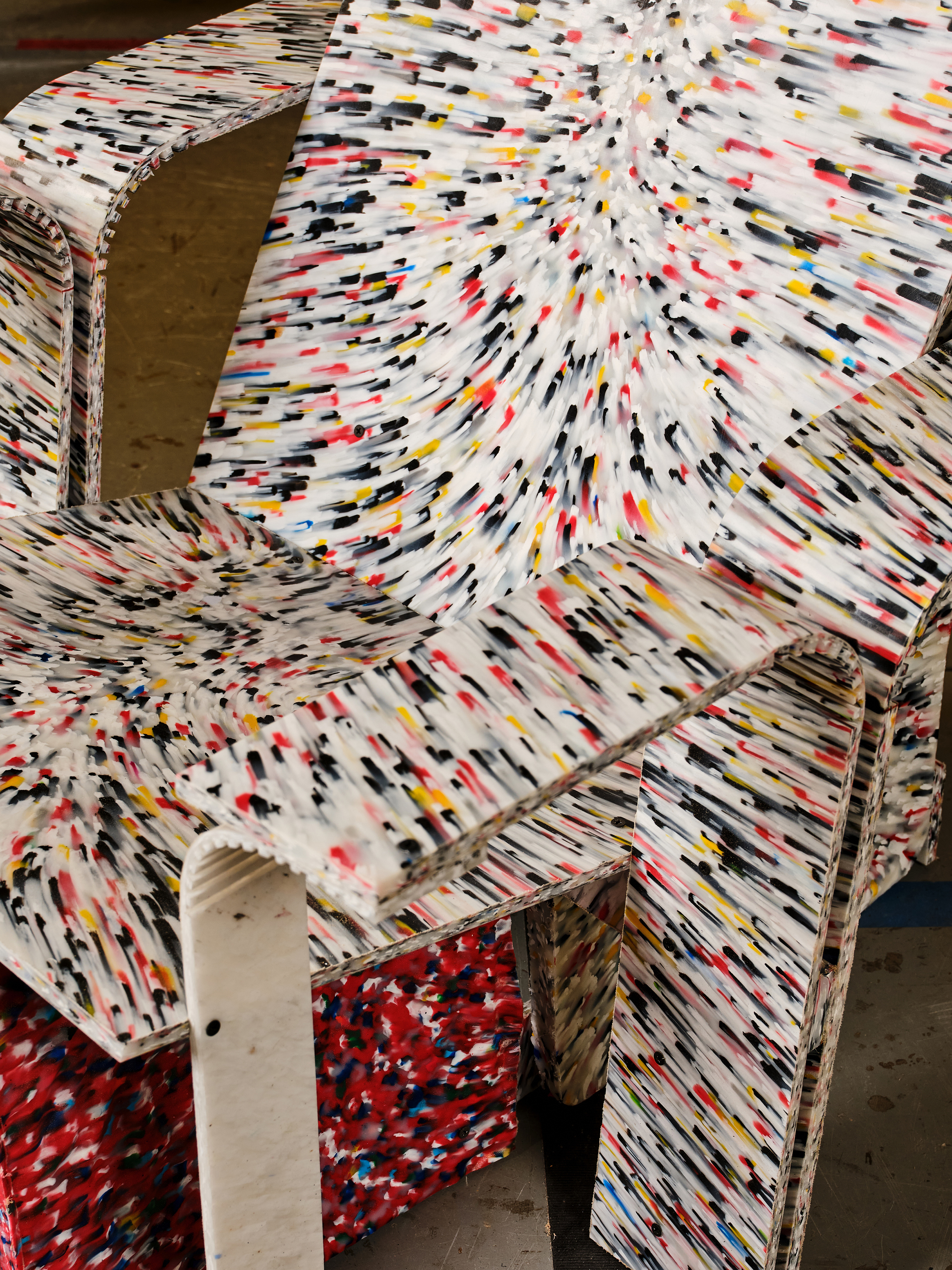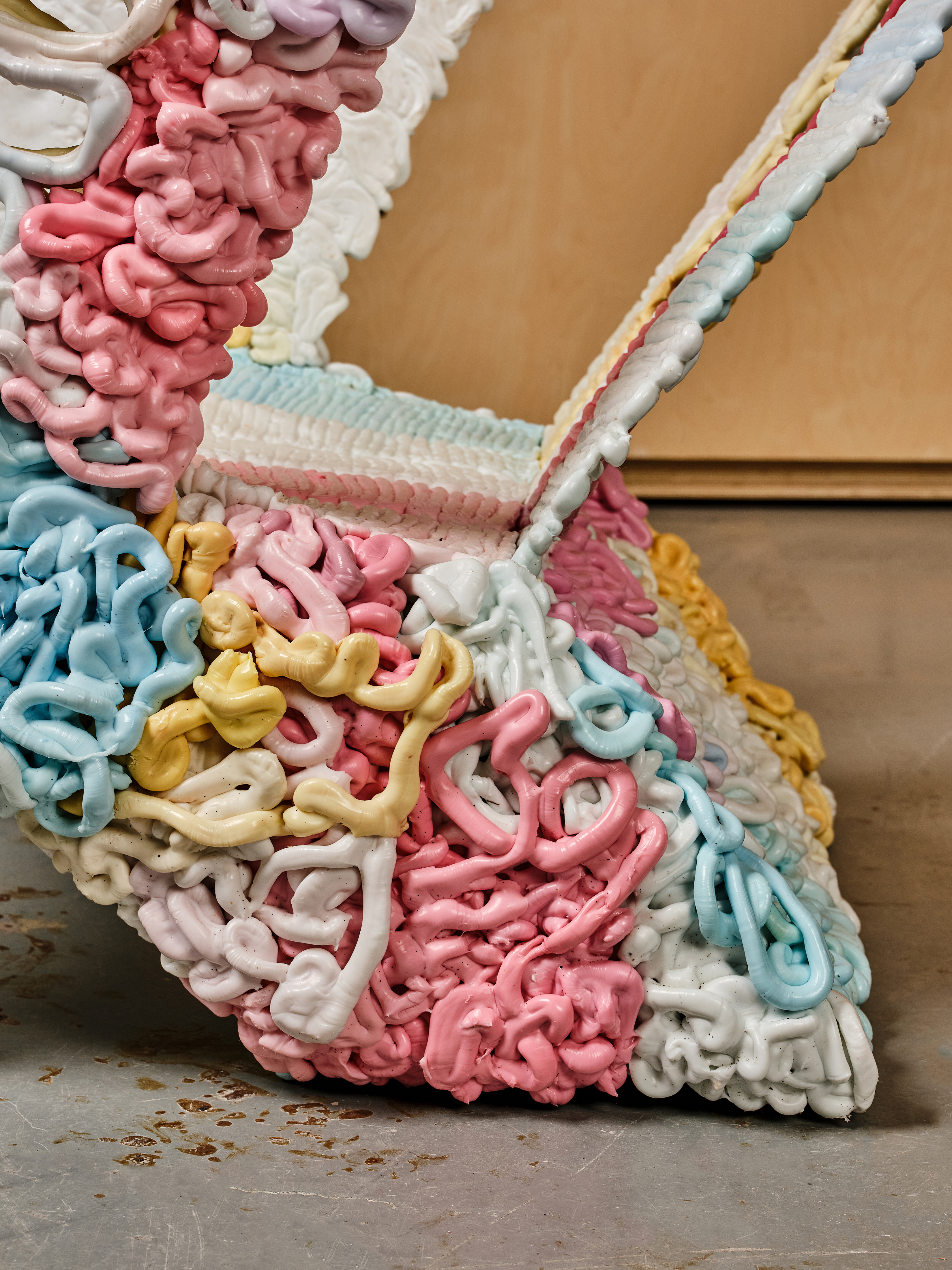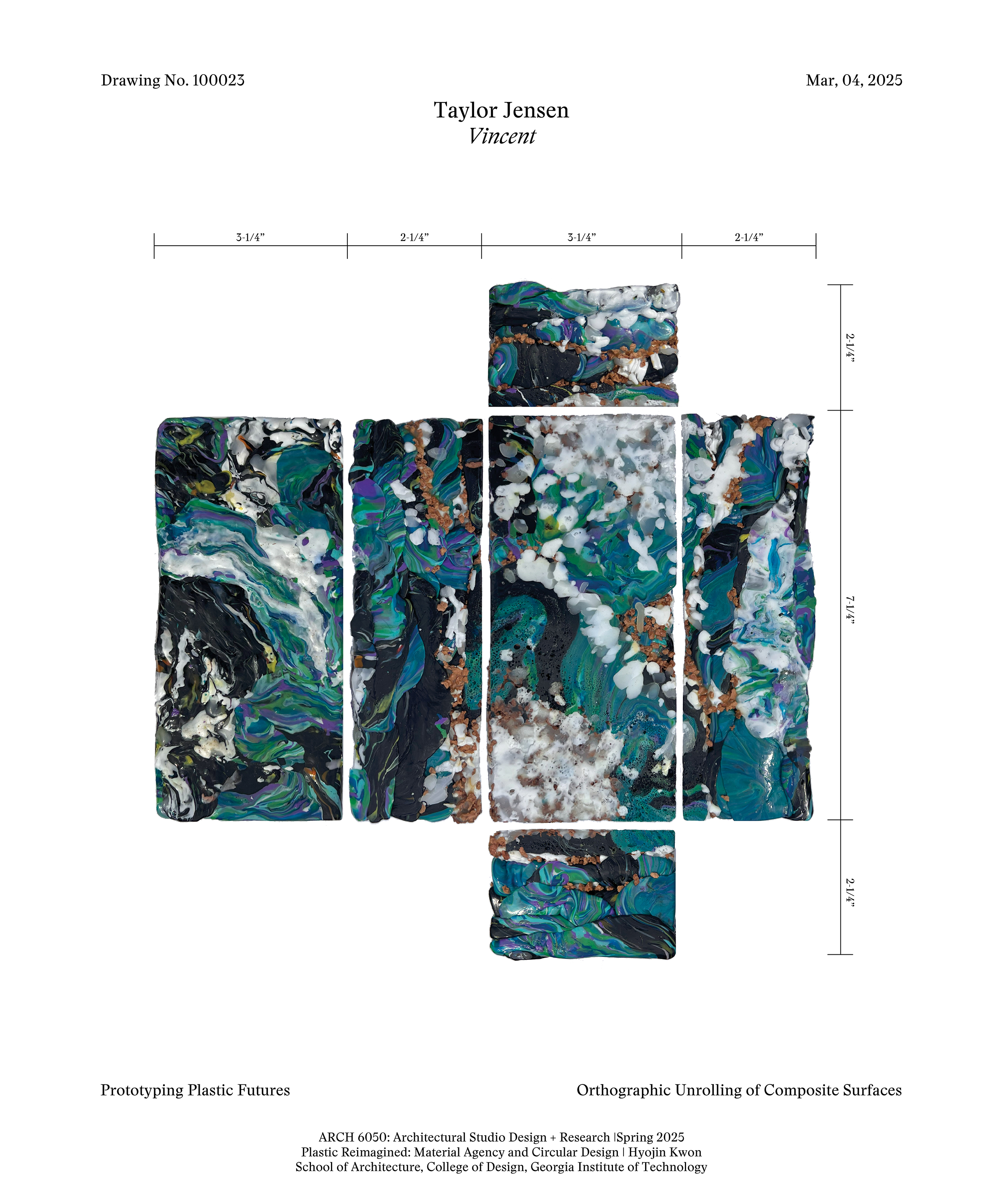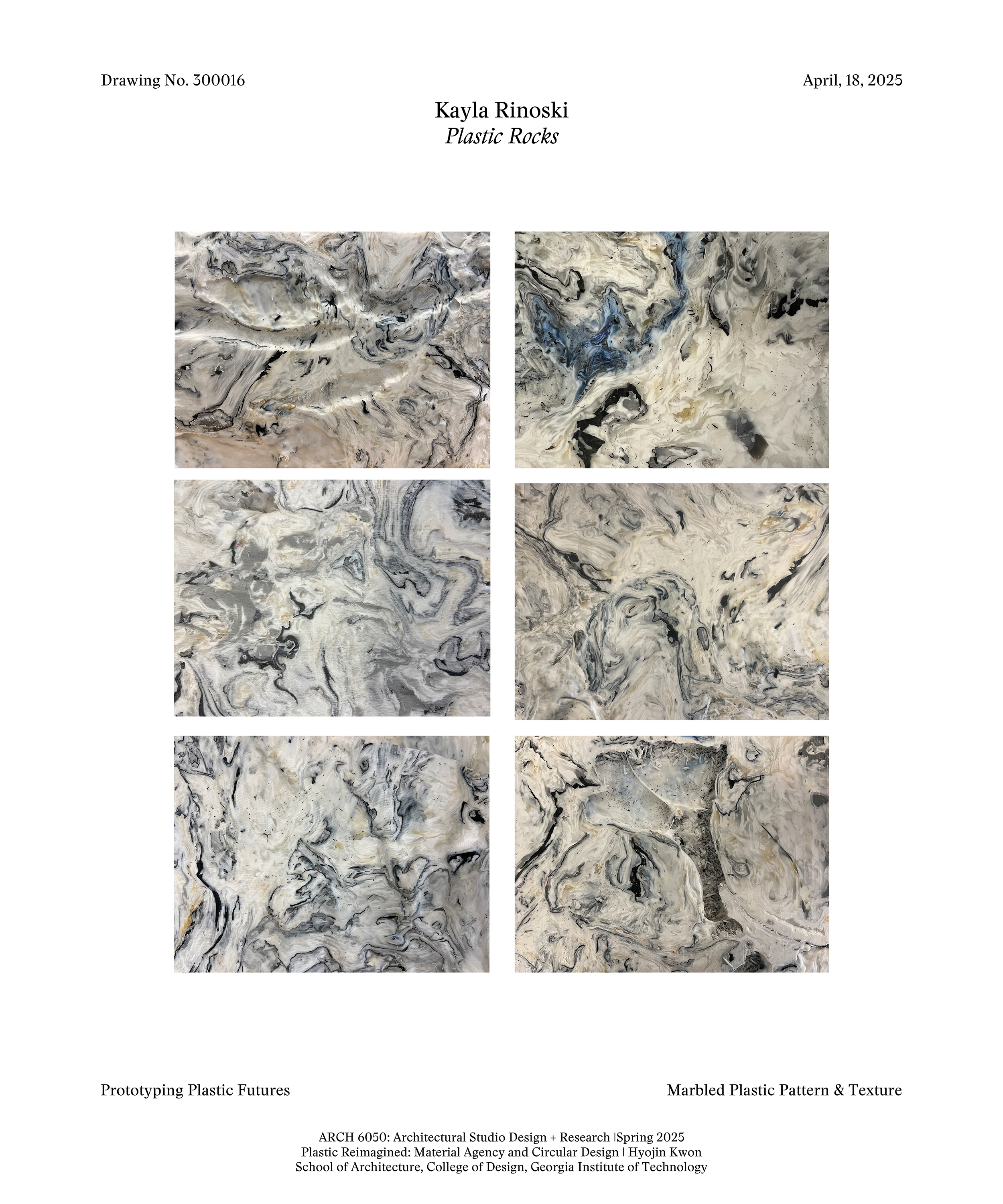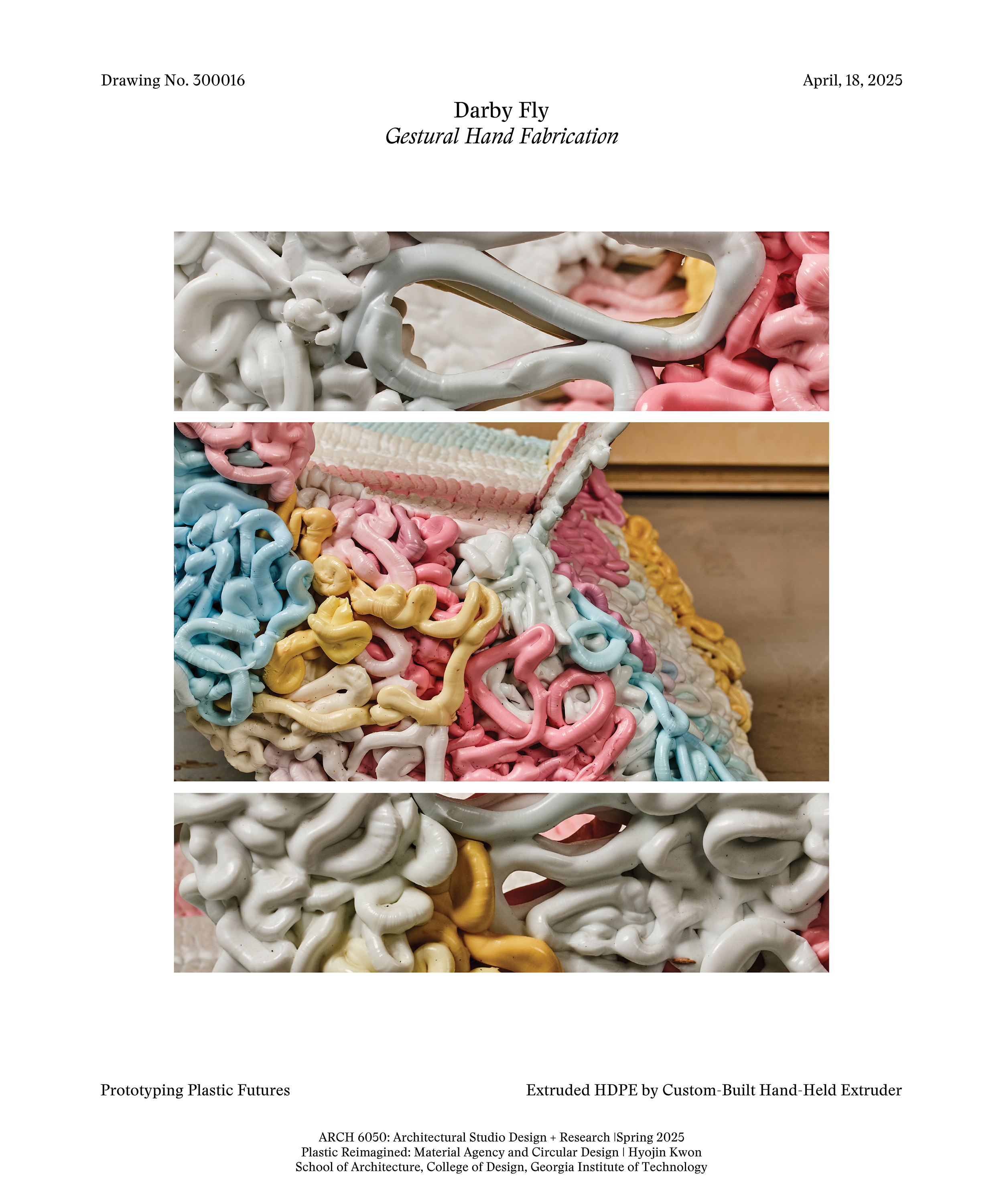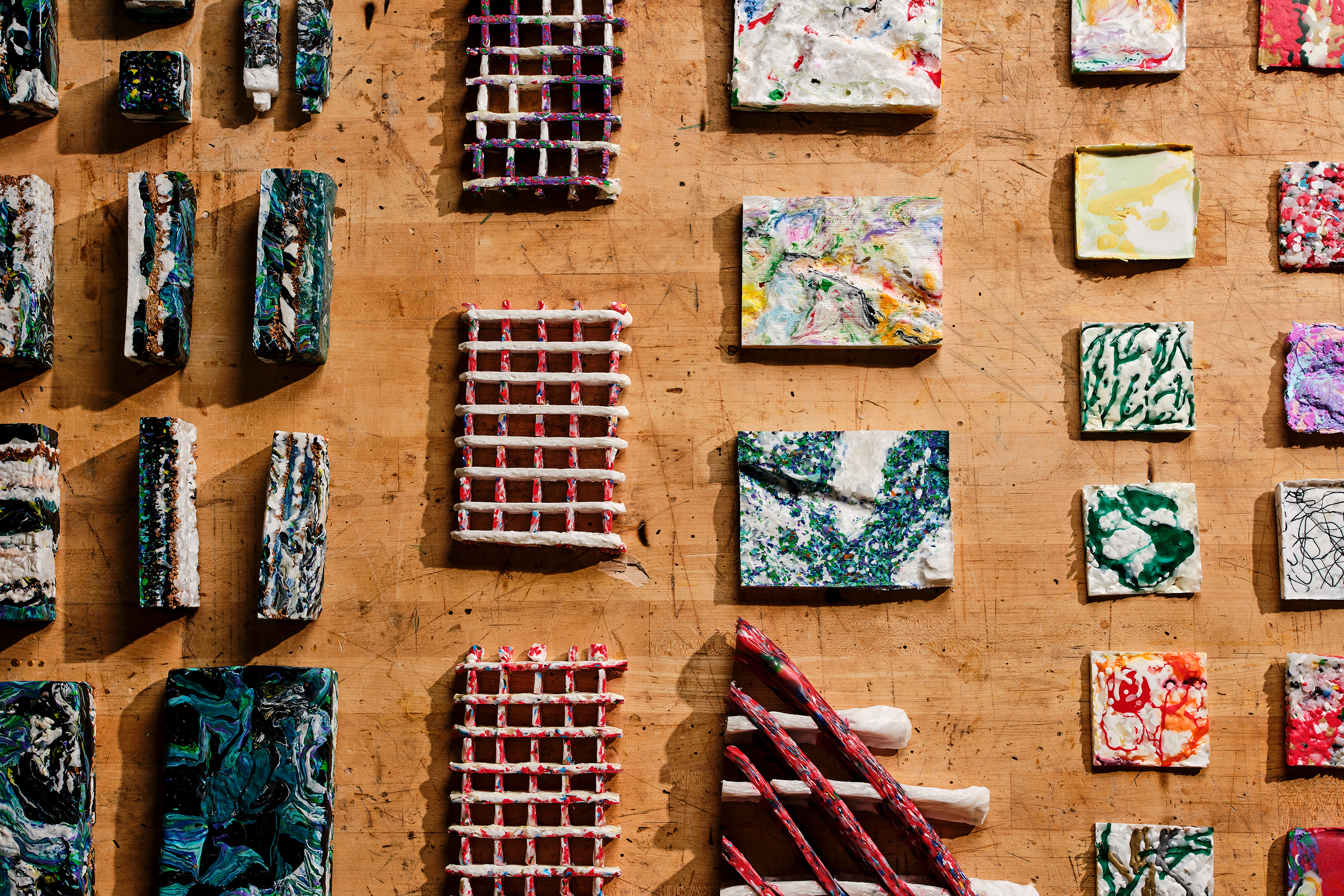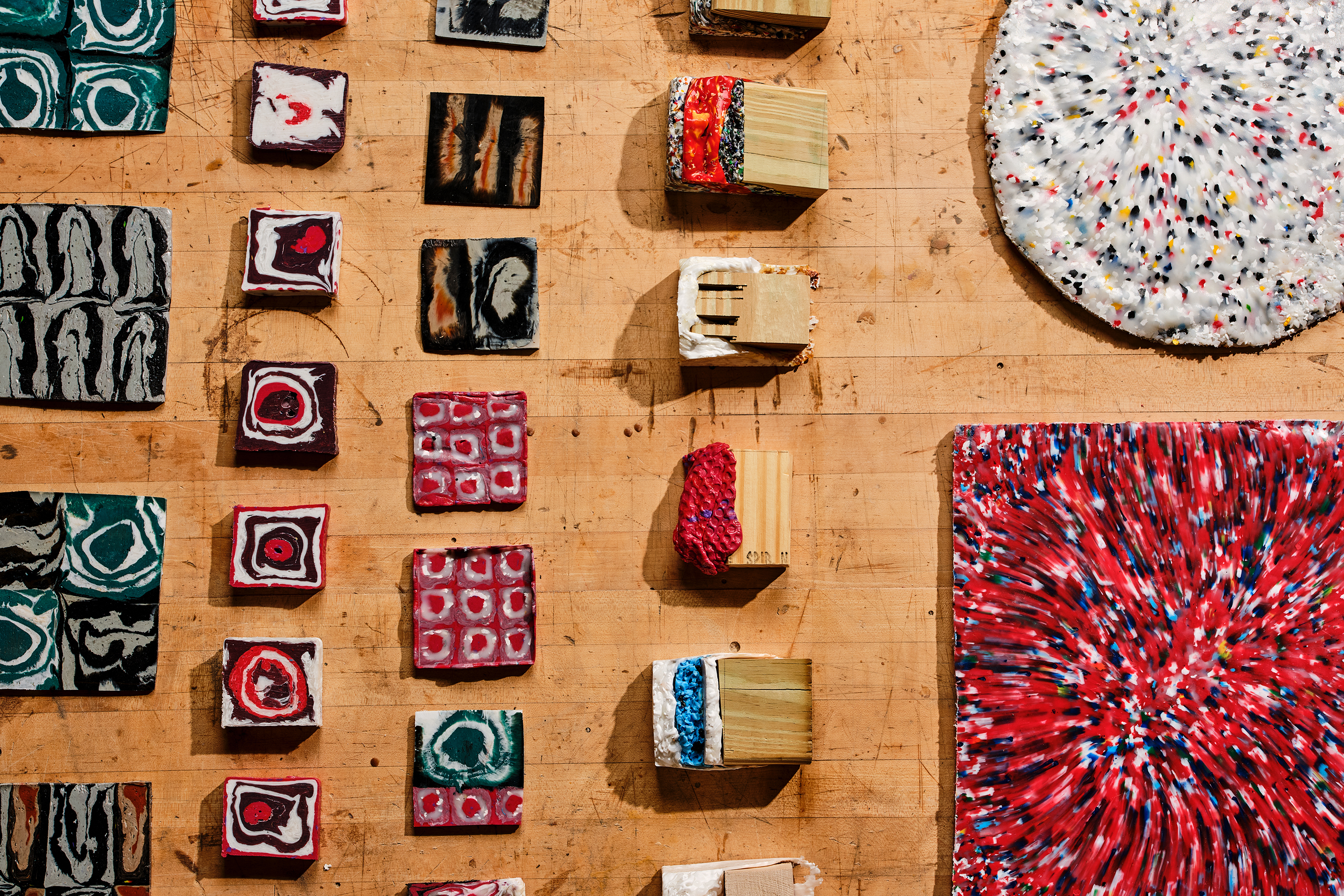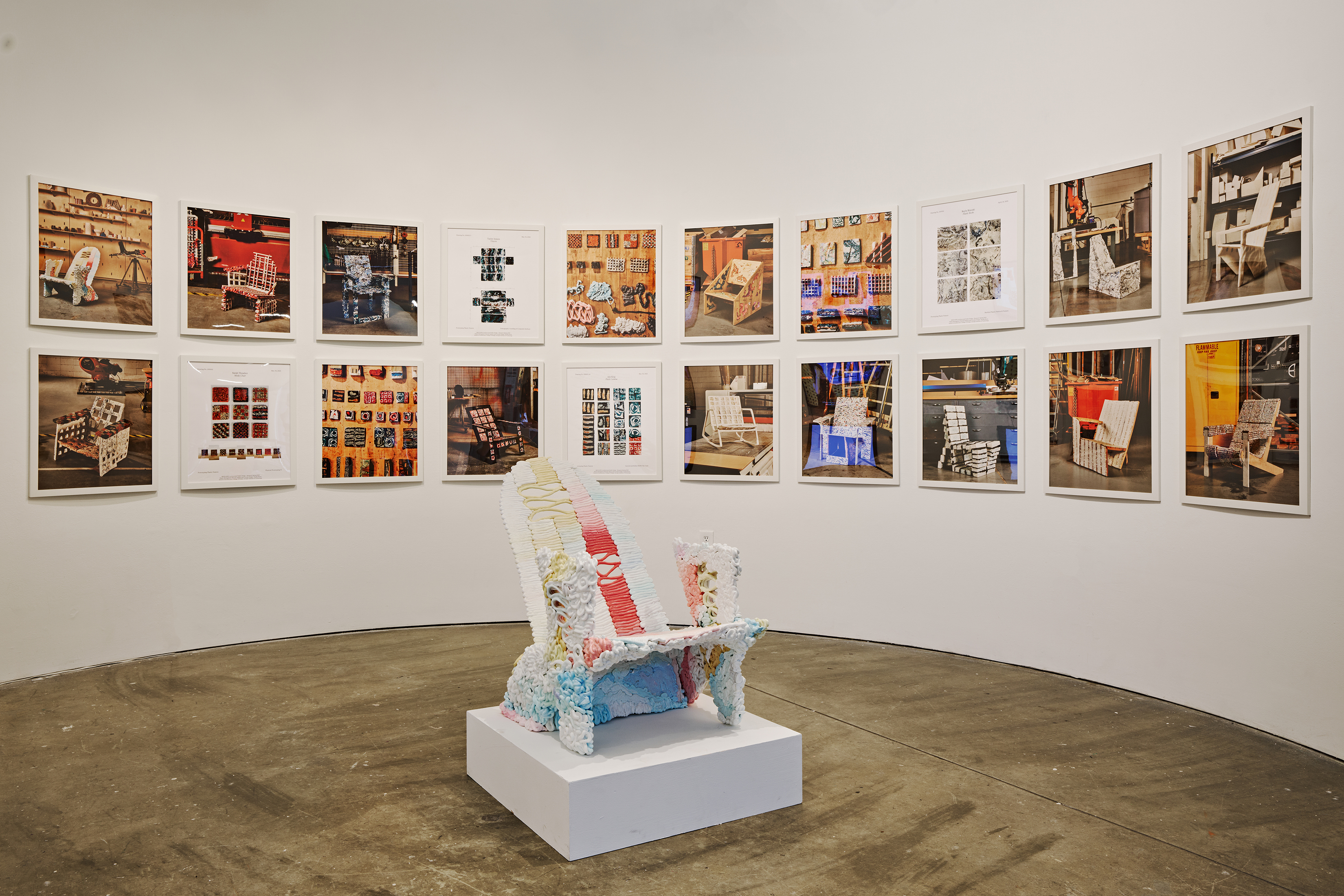
Plastic Reimagined: Material Agency & Circular Design
Date: 2025.06 – 2025.09
Location: Atlanta Contemporary, Atlanta, Georgia
Participants: Anuj Chhikara, Darby Fly, Sara Hill, Ash King, Brian Lachnicht, Nicholas Liubinskas, Kayla Rinoski, Tianxiang Sheng, Sarah Thrasher, Rachel Witherspoon, Taylor Jensen, Qin Wang, Kai Wang
Status: Completed
Type: Exhibition
Plastic Reimagined is a design research studio and public installation that repositions recycled plastics as both architectural substrate and epistemic medium. Conducted within the graduate-level Architectural Design + Research Studio at Georgia Tech School of Architecture and supported by the Arts at Tech Catalyst Grant, the project interrogates the material, technological, and cultural entanglements of plastic as a site for computational form-making, environmental speculation, and aesthetic contradiction.
Rather than treating plastic as inert detritus, the studio approached it as an anthro-material—a synthetic yet anthropogenic actor whose existence embodies the contradictions of late capitalism, material innovation, and ecological anxiety. As Jane Bennett writes, even discarded matter possesses “thing-power”—agency beyond human use. Plastic, in this context, is studied not only for its machinic pliability but also for its cultural charge: ubiquitous yet invisible, banal yet eternal. Jeffrey Meikle reminds us that plastic is not merely a commodity but a cultural condition—one that reflects the contradictions of modernity through mutability, mimicry, and moral ambiguity.
The studio reconfigured post-consumer plastics—HDPE and PLA—sourced from campus and community waste streams into architectural matter through a dual workflow of direct material engagement and computational modeling. Initial phases prioritized hands-on prototyping to understand thermal behaviors, pliability, and structural potential through melting, compression, and forming. These insights informed voxel-based modeling, physics-based simulation, and digital fabrication. Computational tools were not used to prescribe form but to amplify and negotiate the materials’ complex behaviors. Final outcomes merged analog and digital techniques—CNC milling, waterjet cutting, thermal fusing, and hand-finishing—into workflows for micro-architectural seating prototypes. In the spirit of Peter Smithson’s notion of the chair as “architecture in miniature”, these 13 projects framed the chair not simply as furniture but as a condensed site for spatial inquiry, material innovation, and architectural speculation.
The studio positioned plastic as a lens for understanding climate-responsive computation and the aesthetics of waste. Plastic is not the opposite of nature—it is the proof that we never left it. This reflection captures our pedagogical ambition: to empower students to work critically with waste, rethink form-making through a lens of circular design, and engage computation as a tool for ethical speculation.
The work culminates in a public exhibition at Atlanta Contemporary. As both environmental artifact and speculative fiction, Plastic Reimagined bridges material reuse with digital imagination—asking how architecture might design with and through the detritus of the Anthropocene. By reframing waste as design intelligence and computation as a responsive method, this studio offers a model for how design education can engage ecological urgency—transforming refuse into reflection and pedagogy into action.
![]()
![]()
![]()
Participants: Anuj Chhikara, Darby Fly, Sara Hill, Ash King, Brian Lachnicht, Nicholas Liubinskas, Kayla Rinoski, Tianxiang Sheng, Sarah Thrasher, Rachel Witherspoon, Taylor Jensen, Qin Wang, Kai Wang
Status: Completed
Type: Exhibition
Plastic Reimagined is a design research studio and public installation that repositions recycled plastics as both architectural substrate and epistemic medium. Conducted within the graduate-level Architectural Design + Research Studio at Georgia Tech School of Architecture and supported by the Arts at Tech Catalyst Grant, the project interrogates the material, technological, and cultural entanglements of plastic as a site for computational form-making, environmental speculation, and aesthetic contradiction.
Rather than treating plastic as inert detritus, the studio approached it as an anthro-material—a synthetic yet anthropogenic actor whose existence embodies the contradictions of late capitalism, material innovation, and ecological anxiety. As Jane Bennett writes, even discarded matter possesses “thing-power”—agency beyond human use. Plastic, in this context, is studied not only for its machinic pliability but also for its cultural charge: ubiquitous yet invisible, banal yet eternal. Jeffrey Meikle reminds us that plastic is not merely a commodity but a cultural condition—one that reflects the contradictions of modernity through mutability, mimicry, and moral ambiguity.
The studio reconfigured post-consumer plastics—HDPE and PLA—sourced from campus and community waste streams into architectural matter through a dual workflow of direct material engagement and computational modeling. Initial phases prioritized hands-on prototyping to understand thermal behaviors, pliability, and structural potential through melting, compression, and forming. These insights informed voxel-based modeling, physics-based simulation, and digital fabrication. Computational tools were not used to prescribe form but to amplify and negotiate the materials’ complex behaviors. Final outcomes merged analog and digital techniques—CNC milling, waterjet cutting, thermal fusing, and hand-finishing—into workflows for micro-architectural seating prototypes. In the spirit of Peter Smithson’s notion of the chair as “architecture in miniature”, these 13 projects framed the chair not simply as furniture but as a condensed site for spatial inquiry, material innovation, and architectural speculation.
The studio positioned plastic as a lens for understanding climate-responsive computation and the aesthetics of waste. Plastic is not the opposite of nature—it is the proof that we never left it. This reflection captures our pedagogical ambition: to empower students to work critically with waste, rethink form-making through a lens of circular design, and engage computation as a tool for ethical speculation.
The work culminates in a public exhibition at Atlanta Contemporary. As both environmental artifact and speculative fiction, Plastic Reimagined bridges material reuse with digital imagination—asking how architecture might design with and through the detritus of the Anthropocene. By reframing waste as design intelligence and computation as a responsive method, this studio offers a model for how design education can engage ecological urgency—transforming refuse into reflection and pedagogy into action.
